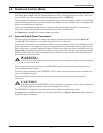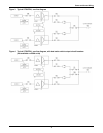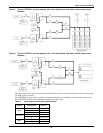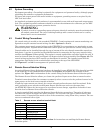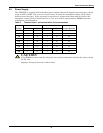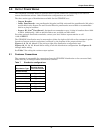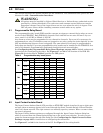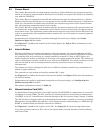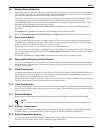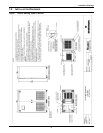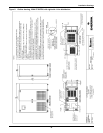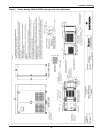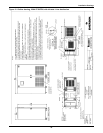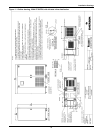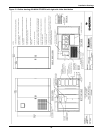
Options
15
6.3 Comms Board
The Comms Board provides a communication interface to Liebert SiteScan, site monitoring product
and/or an external or internal modem. SiteLink-12 or SiteLink-4 is required for SiteScan to communi-
cate with the STS2/PDU.
The Comms Board is equipped with an RS-422 communication port for communication to a Liebert
SiteScan monitoring system using a 2-wire twisted pair for reliable communication up to 1000 meters
(3281 feet). Information available from the RS-422 port includes the present switch status informa-
tion, all monitoring parameters and all active alarms.
The Comms Board is equipped with a modem interface for remote reporting of the present switch sta-
tus information, alarm history information and the history of status screens that are triggered upon a
major alarm event. The monitoring system software also supports an auto-dial feature that allows the
system to automatically dial programmed phone numbers by way of the modem to report designated
alarm conditions.
Programming the Comms Board is performed through the touch screen display. See Comm
Options on page 105 for details.
See Figures 47 and 48 for the location of the Comms Board. See Figure 52 for information on the
control wiring.
6.4 Internal Modem
The Internal Modem is an option that must be ordered separately. An external modem is available
from third party sources. The Internal Modem is capable of dialing out from the STS2/PDU or accept-
ing incoming calls and connecting to a remote terminal or computer. Using an ASCII Query and
Answer format the modem connection can be used to view system status and alarms. The modem pro-
vides all information normally available on the LCD of the STS2/PDU. No control functions are avail-
able via the modem, such as making transfers, selecting a preferred source or changing
configurations.
The modem can also be configured to dial out two different telephone numbers (any combination of
modem or pager numbers).
The connection to this modem is through a standard RJ-11 port.
See Figures 47 and 48 for the location of the internal modem. See Figure 53 for more information on
the internal modem.
Programming the modem is performed through the touch screen display, see Configuring the
Modem on page 105 for details.
The modem commands are shown in Table 13.
6.5 Network Interface Card (NIC)
An OpenComms Network Interface Card (NIC) enables the STS2/PDU to communicate to a network
management system (NMS). The NIC provides the internal hardware and software to communicate,
via SNMP, to any I.P.-based Ethernet network through an RJ-45 connector using Category 5 cabling.
The NIC provides redundant paths for communications that make it possible to connect to a Building
Management System (BMS) using Modbus, while simultaneously communicating to a NMS through
SNMP. A terminal block provides the connection to Modbus.
See Figures 47 and 48 for the location of the NIC. See Figure 54 for control wiring information.
If you have questions about the NIC, refer to the OpenComms Network Interface Card Installation
and Users Guide.




